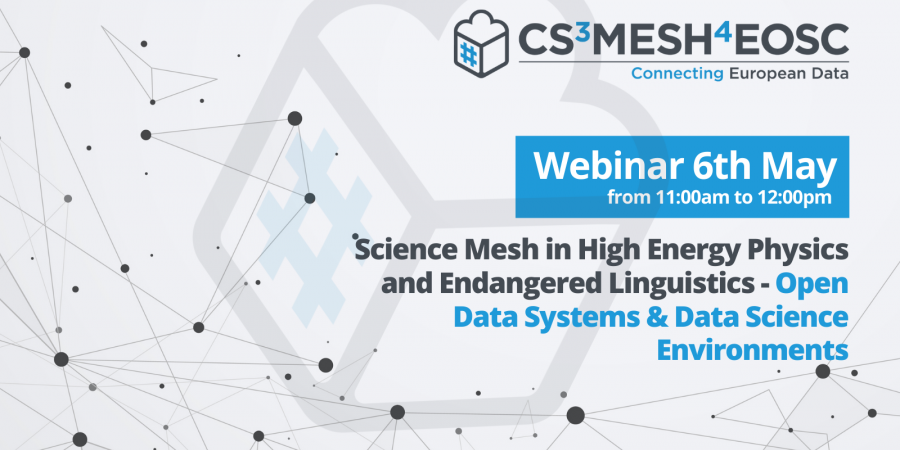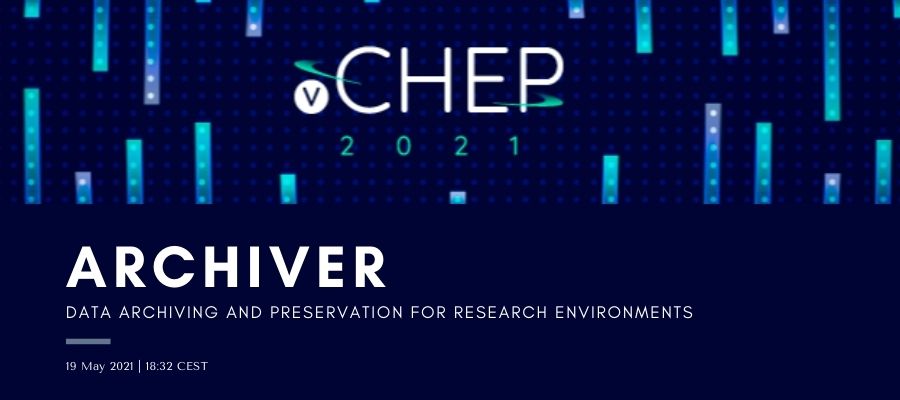- About
- The PCP
- R&D
- Tender
- The Solutions
- Early Adopters
- Events
- News
Open Map

The first CS3MESH4EOSC webinar, entitled “Science Mesh in High Energy Physics and Endangered Linguistics - Open Data Systems & Data Science Environments” is taking place on 6th May from 11:00 am-12:00 pm CEST. The webinar will showcase how the Science Mesh is integrating both data science environments and open data repositories into the federated Science Mesh, supporting collaboration of distributed science teams across disciplines. Exemplary benefits of this integration in Humanities and High Energy Physics fields will be presented by real use-cases that are already getting societal and scientific benefits from those Science Mesh’s features.
The Science Mesh is a rich ecosystem for frictionless scientific collaboration and access to research services. It aims to be an interoperable platform to easily sync & share, and deploy applications and software components within the full CS3 community to extend functionalities of the service. This will offer researchers opportunities to assemble an efficient, reliable, collaborative and transparent research tool chain, while retaining control over their datasets, while becoming FAIR compatible.
REGISTER NOW
Who should attend?
- Researchers, data curators and analysts aiming to assembling an efficient, reliable, collaborative and transparent research tool chain, to more easily articulate the impact of their research in the upcoming altimetrics policy environment;
- Institutional operators and services looking forward to using an easier long-term data custodianship and seamless access the functionality or the data they require in a transparent way, fully integrated with the in-house services;
- Commercial software developers that aim to develop new product based on complex, large scale data in virtually all sectors;
- Non-commercial software developers looking for an easier time writing research workflow code against a standardised API to access metadata;
- Policy makers & citizens to get to know standarised tools that facilitate collaboration of citizen scientists and Citizen Observatories, as well as make make FAIR data relevant in the day to day science practice of all researchers.
More information about the speakers and the event programme can be found on the dedicated webpage here.



